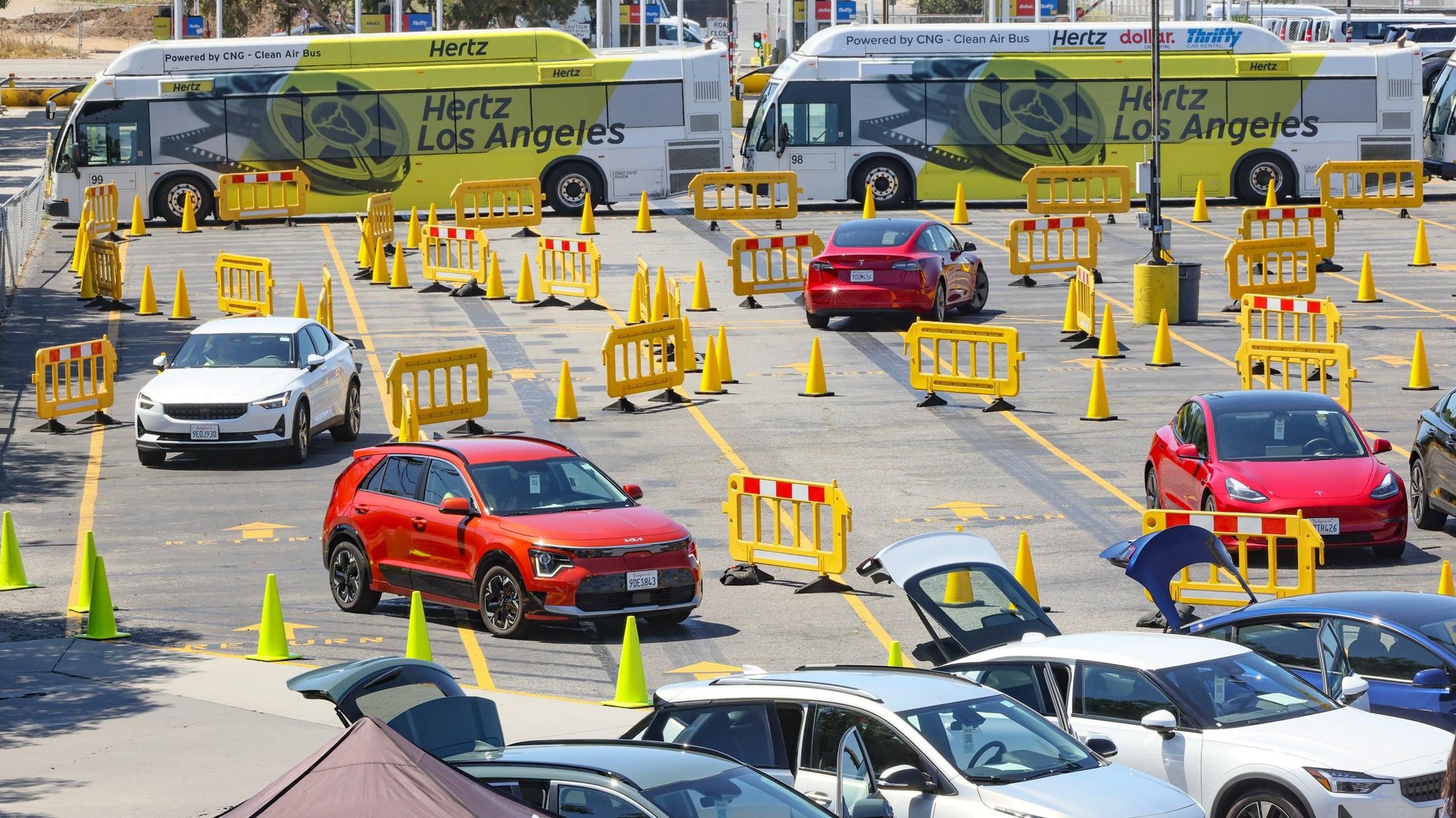Hertz's CEO called its electric vehicle fleet a "distraction"
The rental car company dropped a third of its EVs and indicated it might thin the fleet further

Back in July last year, Hertz gathered a bunch of people at a Los Angeles International Airport parking lot festooned with cones and sandbagged safety barriers and a bunch of electric vehicles: Teslas, Chevys, Kias, Polestars. “For customers who are curious about electric vehicles, there’s no better way to experience one than with a test drive at Hertz, which has the largest rental fleet of EVs in the U.S.,” Laura Smith, an executive with the company, said in a press release accompanying the event. So much excitement around the future of automotive technology!
Suggested Reading
Well, Hertz has become a lot less excited with its EV fleet in the months since. The rentier reported higher revenue last quarter, up 7% from last year to $2.2 billion. But it also told investors that profits took a $464 million swing to a $348 million loss. CEO Stephen Scherr blamed EVs.
Related Content
An “operational distraction”
It turns out that EVs are more expensive to maintain than Hertz had initially thought, and it couldn’t make as much selling them when they needed to refresh their offerings. This won’t do in the long term, so a business decision was made.
“I think we have dramatically de-risked the ability to go at cost unrelated to the EVs, meaning away from the sort of clear categories of expense that we are relieving ourselves in the sale of the EVs,” Scherr told investors. “We are reducing the operational distraction in the field in a very meaningful way.”
What does that mean? “We obviously took and are taking 20,000 cars out,” he said. The company plans to re-inflate the size of its fleet with cheaper gas-powered cars that it thinks customers will rent more often. But if that’s not enough?
“We think we’ve landed on an EV fleet that meets demand,” Scherr told investors. “But I can assure you, if those numbers don’t scratch to an adequate return, then we will take further action against that fleet.”